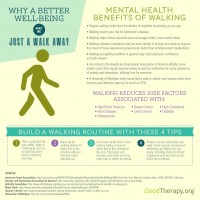 Establishing a good self-care routine can sort of be compared to putting on an oxygen mask when an airplane cabin loses pressure. “Put your own mask on first before assisting others,” the flight attendant warns us during the safety brief before departure. While it may seem selfish and counterintuitive for some to help themselves before assisting others in an emergency, there is a simple truth contained in the order to don your own mask first:
Establishing a good self-care routine can sort of be compared to putting on an oxygen mask when an airplane cabin loses pressure. “Put your own mask on first before assisting others,” the flight attendant warns us during the safety brief before departure. While it may seem selfish and counterintuitive for some to help themselves before assisting others in an emergency, there is a simple truth contained in the order to don your own mask first:
You cannot help others to the best of your ability if you are stuck fighting for oxygen.
The same can be said of self-care. If you are not your best self, how can you provide the best support to those around you? It is important not only to monitor your own well-being, but also to make sure it is well maintained before a crisis occurs so you can take care of yourself and others when your help is really needed.
In order to develop your own self-care routine, evaluate these three essential components of self-care in your own life:
Physical Self-Care
The physical component of a good self-care routine incorporates all aspects of your life that affect you physiologically, such as diet, exercise, and the quality of your sleep.
A poor diet can profoundly impact your immune system, mental health, and risk for chronic disease. Our society’s acceptance and reliance on many convenient and fast foods may further compound the problem for some by perpetuating dietary issues, poor nutrition, and amplifying the effects of stress.
Exercise is also an important part of self-care, especially as more people take on sedentary jobs that have them sitting behind computer screens all day. The Harvard School of Public Health recommends healthy adults get at least 75 to 150 minutes of moderate to intense physical activity each week. Your physical activity does not have to be running a marathon; it can be something easy like a daily 30 minute walk after work, after dinner, or during your lunch break.
Finally, sleep—both quality and quantity—is a component of self-care that often gets overlooked, but according to a recent study in the Journal of Neuroscience, lack of sleep may actually cause irreversible damage to brain cells. In the study, researchers examined the brains of mice that were put under similar sleep conditions as late shift workers. They were only allowed to sleep four to five hours each day and after just a few days, scientists discovered significant brain cell loss in a particular area of the brain stem responsible for alertness and staying awake. Sleep is also important for healing damage we do to our bodies each day, weight loss, and maintaining healthy stress and hormone levels. The National Sleep Foundation recommends seven to nine hours of sleep each night for adults to remain healthy. To help you get better sleep, they also recommend the following:
- Try to keep the same sleep schedule even on the weekends.
- Try to incorporate a relaxing ritual such as reading a book or a few minutes of meditation before bed.
- Maintain a good exercise routine.
- Make your bedroom as dark and quiet as possible.
- Avoid alcohol and caffeine before bedtime.
If you’re still not convinced you need to sleep seven to nine hours each night, challenge yourself to do so for a week or two and see how you feel after you’ve gotten a period of good, restful sleep. The results will likely encourage you to continue taking care of yourself in this manner.
Mental Self-Care
Use it or lose it, the old saying goes. The mind is part of the body and, like the body, needs to be exercised to protect from cognitive decline and chemical imbalance, and to help you achieve your best sense of self. The mental component of a good self-care routine addresses your emotional needs, allows you to engage your creativity, and challenges your brain.
Engage your emotions by experiencing and acknowledging them in different ways. When you are angry at a friend or relative, write a letter you may or may not send that expresses exactly how you feel. Try writing in an “emotional journal” at the end of the day that details how different situations throughout the day made you feel. Acknowledge the good and the bad. You might be surprised to discover that these simple exercises may not only help you be more present in the moment, but they also may teach you to be more empathetic and conscious of the emotions of others.
You cannot help others to the best of your ability if you are stuck fighting for oxygen.
Allowing your creativity to run wild is another great way to exercise your mind and de-stress. Find an activity you enjoy such as painting, drawing, or writing that allows for creative self-expression. Let go of shame, regret, and caution, and let your artistic sessions get as weird as you want them to be. And don’t be concerned about whether you are any good at it; that’s why you practice it.
According to the Alzheimer’s Association, low levels of education have been linked to a greater risk for Alzheimer’s later in life. One hypothesis for this is a lower level of lifelong mental stimulation. Several bodies of important neurological research point to the possibility that regularly challenging your brain with activities like crossword puzzles, Sudoku, and jigsaw puzzles may help improve the lifespan of and facilitate better connections between brain cells. Although research is still being done to prove these hypotheses, it’s relatively safe to assume that exercising your problem-solving abilities can contribute to a healthier you.
Spiritual Self-Care
Even if you are not a religious person, spirituality is still an important component of a good self-care routine. On the other hand, if you do follow a particular religious faith, spirituality may already be a big part of your self-care routine without you even being aware of it. Regardless of where you fall on the spectrum, religion is only one avenue of expression when it comes to spirituality.
Spirituality is a blend of how you connect with others on a social level, how you connect with a higher form of your own self, and how you connect with the concept of something that is bigger than you. Expressing your spirituality might be dedicating time each day to pray about what concerns you, spending a few minutes in quiet meditation, or socializing with others and discussing what spirituality means among the group. Others ways people express their spirituality may include:
- Trying to live by a set of values you wish to see in others.
- Acknowledging the things in life you are grateful for.
- Reading books concerning spirituality in an effort to develop your own.
- Spending time outdoors connecting with the natural world.
- Volunteering to help those in need.
This component of self-care is important to our overall well-being because it helps us cope with stress, allows us time to reflect on ourselves, and provides safe space to express thoughts, beliefs, and emotions that are central to our own worldviews.
Know When Your Self-Care Routine Needs Work
Perhaps one of the most important parts of self-care is being able to recognize when you need to practice a little. If you neglect your own self-care for too long, especially if you are a caregiver or health care provider, you may experience burnout or some form of compassion fatigue that makes caring for others in an ethical way difficult or nearly impossible.
If you find yourself feeling ground down and think you need help developing a good self-care routine, consider finding a therapist or counselor with whom you can form a therapeutic relationship. There may be underlying issues, emotions, or behaviors that need addressed in order for you take care of yourself physically, spiritually, and mentally.If you feel like you are wearing thin trying to address other people’s needs and your own all the time, remember the warning from the airline attendant and reach for your oxygen mask.
References:
- How much exercise do you need? (2013, November 20). Harvard School of Public Health. Retrieved from http://www.hsph.harvard.edu/nutritionsource/physical-activity-guidelines
- How much sleep do we really need?? (n.d.). National Sleep Foundation. Retrieved from http://sleepfoundation.org/how-sleep-works/how-much-sleep-do-we-really-need/page/0/1
- Spirituality. (n.d.). Mental Health Foundation. Retrieved from https://www.mentalhealth.org.uk/a-to-z/s/spirituality
- Stay mentally active. (n.d.). Alzheimer’s Association. Retrieved from http://www.alz.org/we_can_help_stay_mentally_active.asp
- Zhang J., Zhu Y., Zhan G., Fenik P., Panossian L., Wang M. M., Reid S., Lai D., Davis J. G., Baur J. A., Veasey S. (2014, March 19). Extended wakefulness: Compromised metabolics in and degeneration of locus ceruleus neurons. Journal of Neuroscience, 34(12): 4418–4431.

The preceding article was solely written by the author named above. Any views and opinions expressed are not necessarily shared by GoodTherapy.org. Questions or concerns about the preceding article can be directed to the author or posted as a comment below.


 9 Self-Care Strategies to Reduce Stress
9 Self-Care Strategies to Reduce Stress A Self-Care Guide to Keeping Your Life Running Smoothly
A Self-Care Guide to Keeping Your Life Running Smoothly Self-Care to Combat Anxiety
Self-Care to Combat Anxiety

